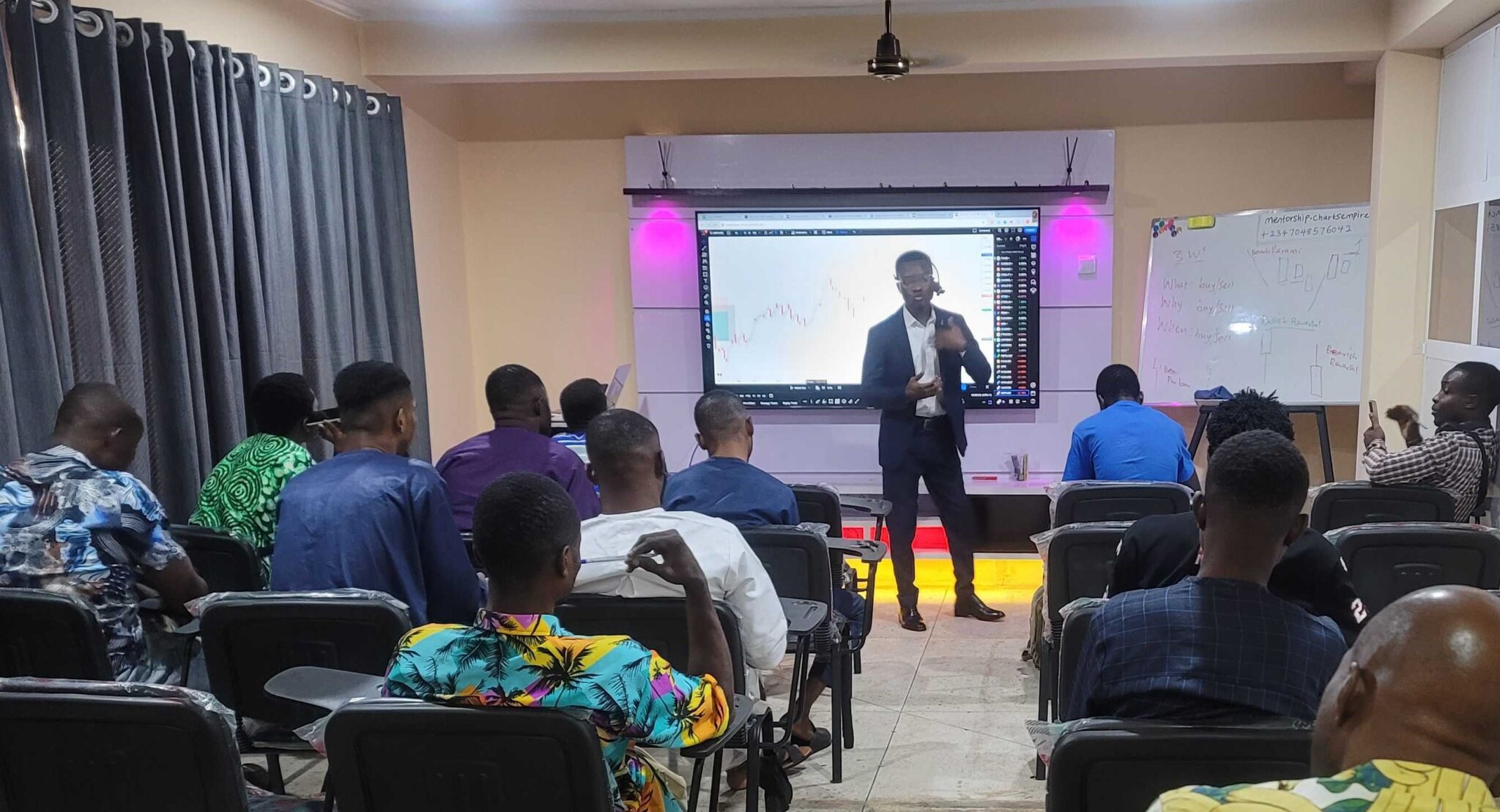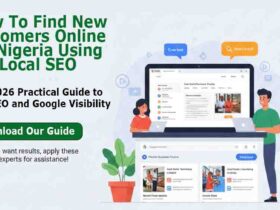
Nigeria is a dynamic and diverse market with unique opportunities and challenges. A successful business there today combines solid fundamentals with a nuanced understanding of local realities—from consumer behavior to regulatory environments, infrastructure, and technology adoption. Below is a comprehensive blog post that expands on the ideas you provided, applying them to the Nigerian context and offering practical steps, examples, and actionable insights.
Craft a Solid Business Plan
A clear, well-structured plan is your roadmap in Nigeria’s fast-paced economy. It helps you secure funding, align your team, and stay focused amid volatility.
- Executive clarity: Define your mission, vision, and core values. In Nigeria, where markets can be fragmented, a strong purpose helps you differentiate and rally stakeholders.
- Market reality: Conduct rigorous market sizing, demand validation, and competitive analysis that reflect local consumer preferences, payment habits, and distribution channels.
- Revenue model: Choose a model suitable for Nigerian customers—subscription, tiered pricing, micro-payments, or pay-per-use—and test it in a lean MVP.
- Financial discipline: Build cash flow projections that account for FX risk, import/export costs, logistics, and potential delays.
- Regulatory awareness: Identify licenses, taxes, and compliance requirements early (e.g., CBN regulations for fintech, Lagos State registration for local operations).
Get Organized
Operational discipline is a competitive advantage in Nigeria, where supply chains and processes can be imperfect.
- SOPs and workflows: Document core processes (sales, procurement, customer service) and standardize where possible.
- Tools that fit the environment: Use affordable CRM, project management, and invoicing tools; consider offline-capable solutions for areas with limited connectivity.
- Data hygiene: Keep clean customer data, supplier records, and financials to avoid costly errors.
- Physical and digital hubs: Centralize critical information in a shared drive and establish a routine for weekly reviews.
Focus on Your Customers
Understanding Nigerian customers means appreciating price sensitivity, informal channels, and trust dynamics.
- Customer personas: Build profiles that capture regional variations ( Lagos vs. Kano vs. Port Harcourt ), income levels, and tech adoption.
- Customer journey maps: From awareness to loyalty, map touchpoints such as social media, street-level sales, and word-of-mouth.
- Payment preferences: Offer flexible options—cash on delivery, mobile money ( e.g., Paga, OPay), bank transfers, and card payments where feasible.
- Trust-building: Leverage local partnerships, transparent pricing, reliable delivery, and after-sales support.
Build a Strong Team
People are your most valuable asset. In Nigeria, attracting and retaining talent requires competitive incentives and clear growth paths.
- Hiring strategy: Prioritize cultural fit, problem-solving, and adaptability. Consider hybrid teams with remote and on-site roles.
- Leadership development: Invest in managers who can mentor, delegate, and maintain accountability.
- Retention: Offer clear career ladders, performance-based incentives, and recognition programs.
- Diversity and inclusion: Embrace regional diversity and language capabilities to serve a broad customer base.
Identify Your Mission and Vision
- Mission: What problem are you solving for Nigerians, and why does your solution matter?
- Vision: Where do you want to be in 3–5 years, and how will you scale impact across states or regions?
- Alignment: Ensure every initiative, product, and partnership reinforces your mission and values.
Implement Marketing Strategies
Marketing in Nigeria benefits from a multi-channel approach, local relevance, and agile experimentation.
- Channel mix: Combine digital (social media, content, influencer partnerships) with traditional touchpoints (radio, billboards, events) where appropriate.
- Content that resonates: Create local-language content, culturally relevant storytelling, and practical demonstrations of value.
- Funnel design: Awareness → Interest → Consideration → Purchase → Loyalty, with region-specific campaigns.
- Localization: Adapt messaging for different regions, price sensitivity, and payment methods.
- AI-enhanced marketing: Use AI for audience segmentation, creative optimization, and personalized communication at scale.
Marketing (Deep Dive)
- Digital presence: A mobile-friendly website, social profiles, and WhatsApp business for customer engagement.
- SEO and content: Publish helpful guides and product comparisons tailored to Nigerian searches.
- Partnerships: Collaborate with fintechs, logistics providers, and local distributors to broaden reach.
- Campaign testing: Run small, rapid tests (A/B tests, creatives, offers) and scale what works.
- Metrics to watch: CAC, LTV, conversion rate, engagement rate, and ROAS.
Prioritize Customer Satisfaction
Satisfaction drives repeat business, referrals, and brand trust—crucial in a competitive Nigerian market.
- Response speed: Aim for quick resolutions through chat, call centers, and social inboxes.
- After-sales support: Easy returns, warranties, and clear service terms help build loyalty.
- Feedback loops: Regular surveys and listening sessions to capture needs and pain points.
- NPS and CSAT: Track Net Promoter Score and customer satisfaction to gauge emotional connection.
Create Goals and Set KPIs
- SMART goals: Specific, Measurable, Achievable, Relevant, Time-bound and aligned to Nigerian market realities.
- Departmental KPIs: Marketing (leads, CAC, retention), Sales (conversion, average order value), Ops (delivery time, order accuracy), Finance (gross margin, cash burn).
- Review cadence: Weekly dashboards, monthly reviews, quarterly strategy pivots.
Keep Detailed Records
- Financials: Invoices, payroll, tax records, grant documentation, if any.
- Operations data: Inventory levels, supplier terms, lead times, and logistics metrics.
- Customer data: Compliance with data protection norms; consent-based marketing.
- Audit readiness: Regularly reconcile data and maintain versioned documents.
Reduce Your Risks
Nigeria presents regulatory, currency, and infrastructure risks. Build resilience.
- Diversification: Don’t rely on a single supplier, channel, or customer.
- Contingency planning: Alternate logistics routes, emergency funds, and backup systems.
- Compliance: Stay current with NAFDAC, NITDA, CBN, and corporate filing requirements.
- Insurance: Property, liability, and business interruption coverage where appropriate.
Build a Strong and Adaptable Brand
- Brand essence: Clear mission-driven story that resonates locally.
- Consistency: Uniform visual identity and tone across all channels.
- Relevance: Evolve with market trends while preserving core attributes.
- Trust signals: Testimonials, case studies, certifications, and social proof.
Finance
- Know your numbers: Regularly track revenue, costs, gross margin, cash flow, and runway.
- Funding options: Explore local accelerators, angel investors, VC funds, and government grants.
- Pricing strategy: Consider tiered pricing, bundle offers, and region-based pricing.
- FX considerations: If you deal with cross-border suppliers or customers, hedge currency exposure where feasible.
Knowing Your Customers
- Deep empathy: Continuous learning about pain points, daily realities, and constraints.
- Local segmentation: Differentiate by region, urban vs. rural, and income bands.
- Voice of customer: Use interviews, community groups, and online reviews to inform product iterations.
A Powerful Business Idea
- Problem-first approach: Start with a real, verifiable problem Nigerians face.
- Feasibility: Assess regulatory, technical, and financial feasibility in the local context.
- Unique value proposition: Define what makes your solution compelling and hard to replicate.
Create Achievable Goals
- Milestone-based planning: Break down annual goals into quarterly, then monthly milestones.
- Resource alignment: Ensure you have the people and budget to achieve each goal.
Customer Relations
- Proactive service: Anticipate needs and resolve issues before they escalate.
- Community engagement: Build loyal communities around your brand through events and online groups.
- Transparency: Openly communicate changes, delays, or price adjustments.
Do Your Research
- Market validation: Test demand, willingness to pay, and user flows with real users.
- Competitive intelligence: Understand competitor strengths and gaps to carve your niche.
Leverage AI to Stay Ahead
- Customer insights: AI-driven segmentation, sentiment analysis, and predictive analytics.
- Operations optimization: Demand forecasting, inventory optimization, and automation of repetitive tasks.
- Personalization: Sharpen marketing and product experiences with tailored content and offers.
Take Care of Yourself
- Founder wellbeing: Burnout risk is real; schedule breaks, exercise, and sufficient sleep.
- Team health: Promote work-life balance and manageable workloads.
Analyze Your Competitors
- Benchmarking: Pricing, features, go-to-market, and customer experience benchmarks.
- Differentiation: Identify your edge and defend it with continuous improvements.
Be Consistent
- Predictable quality: Consistent product performance and service levels build trust.
- Brand voice: Maintain a steady tone and messaging across channels.
Be Creative
- Local experimentation: Try unconventional partnerships, community-driven initiatives, and creative payment models.
- Culture of invention: Encourage ideation, rapid prototyping, and learning from failure.
Leadership
- What makes a business successful?
In Nigeria today, successful leadership combines vision with practical execution:- Clear, customer-centric purpose
- People-centric culture and empowerment
- Financial discipline and risk-aware planning
- Agility to adapt to regulatory changes and market shifts
- Tech-enabled processes without losing human touch
- Ethical practices and trust-building with customers and partners
- Leadership actions to take now:
- Establish transparent decision-making and data-driven culture
- Invest in leadership development and succession planning
- Communicate a compelling, actionable roadmap to the team
- Foster collaboration with local communities and stakeholders
What Makes a Business Successful in Nigeria Today? – Quick Synthesis
- Strong value proposition tailored to Nigerian needs
- Deep understanding of local customers and regional variations
- Robust operational processes and disciplined financial management
- Adaptive marketing that leverages both digital and offline channels
- A resilient supply chain, diverse distribution, and risk Mitigation
- A capable, motivated team with clear roles and growth paths
- Brand trust, authenticity, and consistent customer experience
- Strategic use of technology and AI to optimize decisions
- Founders who prioritize wellbeing and sustainable leadership
Quick Starter Checklist (60–90 days)
- Define your mission, vision, and core values
- Identify 2–3 target customer personas with pains and needs
- Validate your MVP concept with real users
- Build a simple marketing plan and initial funnel
- Set up basic financial tracking (revenue, costs, cash flow)
- Hire or align your core team with clear roles
- Establish key performance indicators for product, marketing, and finance
- Create a risk register with mitigation actions
- Start a weekly team rhythm (updates, blockers, wins)
Next Steps
If you share:
- Your industry and target market in Nigeria
- Your product or service idea
- Your current stage (idea, pre-launch, early revenue)
- Any constraints (budget, geography, regulatory) I can tailor this plan with concrete goals, timelines, and KPIs, plus a lightweight execution calendar and sample dashboards.














Leave a Review